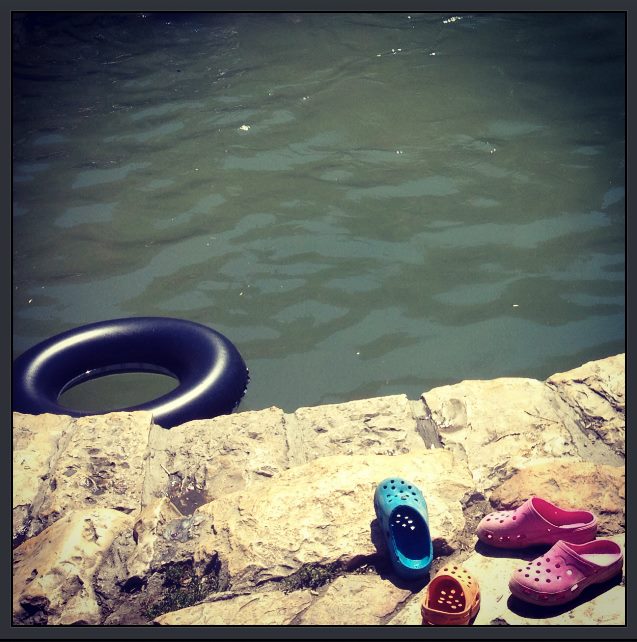
Laura van Rij (LR): What is your connection to Lifta?
Tzipi Kirma (TK): As a child I came from Kurdistan to Lifta. I was three or four when we arrived.. It was very difficult. The people who came from Kurdistan were rich, but they came here with nothing because the Iraqi government took everything from them, even their clothes. In Israel the economic situation was bad, they did not have a job, they did not speak the language, so they could only get jobs in construction or cleaning. They came here very proud, but it´s like you are from Europe and put somewhere in a hut in Africa, you have to start from scratch.
LR: How did it look when you arrived in Lifta?
TK: My father bought a house from the Yemenite people. They lived there only for a few months; it was too difficult for them. There was nothing there, it was empty, they did not have the money to put anything in the house. They were fighting every day just to bring some food home. Some people had three jobs just to feed the children, looking back I don´t understand how our parents managed. When my father bought the house they just discussed how much money they would get for it, without a lawyer, without a contract. They shake hands, like in Kurdistan. One handshake was enough. It was hard, living on the mountain. If you bought a table you had to carry it one kilometre down. Whatever you needed, food from the market, anything, you had to carry up and down the mountain, up and down… Even the rubbish you had to carry somewhere and burn it, the municipality didn´t collect it.
LR: Did people grow some things in the garden?
TK: There were fruits there; every house had some grapes and trees around it. It looked much better in those days. It was only for two months in the summer though, no more. In the winter we made a fire inside the house from the wood, the house used to be full of smoke, but it was warm.
LR: How do you remember your life in Lifta in general? Positive or negative?
TK: It was really very difficult, but there are also positive memories. As children it was easier, we were all the same When I was fourteen years old I went to a school in Jerusalem. It was a school with children from doctors, people from Europe, people from the government, and I was different. I had no money for books; I cleaned houses after school to pay for them. If you ask me now I don´t understand how I could have lived like that. Only me and another girl from the school in Lifta went to the school in Jerusalem. They didn´t tell us all the time, but you feel you are different. My mother always told me she wanted me to learn so I didn´t have to live like them. When I got home there was no one who could help me with my homework, because no one knew how to do it. It was war to learn, as I remember.
LR: How did you meet your husband, David?
TK: We went to the same school in Lifta. When he started working he asked me if I wanted to work in the same place as he did. I said yes and we became friends (laughs loudly).
LR: Do you visit Lifta sometimes?
TK: Yes, now I would like to live there, if I could get a house there. But if I could go back there I would change everything. When we were children my parents didn´t have anything, we were sleeping with two people in one bed. Now it would be different. Maybe they should make something like art galleries in Lifta, or a museum. They should keep it at least. A lot of people have nostalgic feelings about Lifta.

